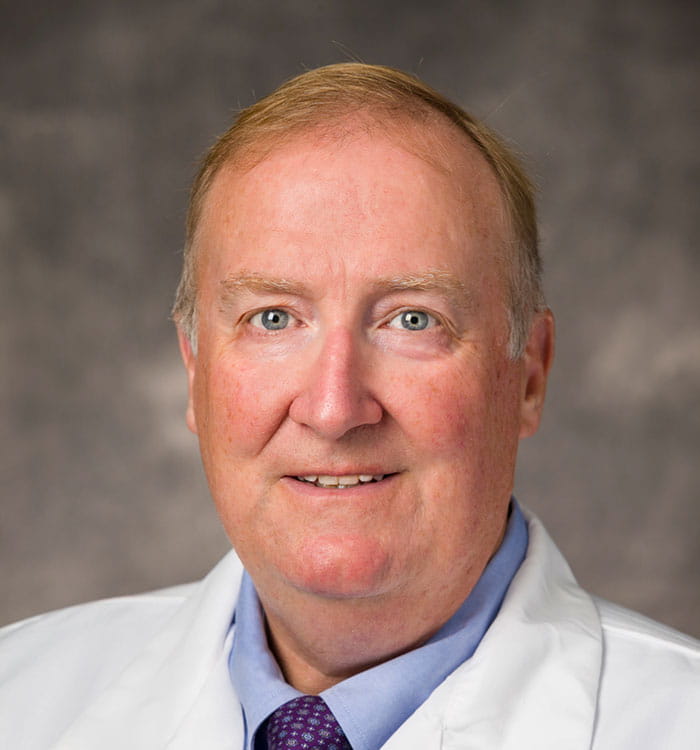Grown-Up Care for Congenital Heart Disease
January 24, 2017
Creating the optimal care setting for adults with congenital heart disease
Innovations in Pediatrics – Winter 2017
 Martin Bocks, MD
Martin Bocks, MD Eric Devaney, MD
Eric Devaney, MDThe number of adults living with congenital heart disease (CHD) has now surpassed the number of children living with the same, thanks to the last two decades’ of advances in surgical repair and medical treatment for CHD. However, the resources and specialists trained to specifically care for an adult population with this unique combination of congenital and acquired medical needs has not kept pace. As a result, many of these patients continue to see pediatric cardiac specialists well into their 30s and 40s.
Patients Caught Between Two Worlds
Imagine a patient who had surgery as an infant to correct a serious congenital heart defect, such as Tetralogy of Fallot. As he grows, various additional corrective surgical and catheter procedures may have been necessary to keep his heart functioning. As an adult, he will require additional cardiovascular care, both for his congenital heart disease and for the acquired heart disease which affects all of us with aging. Who is best to determine the cause and design the treatment plan—a pediatric congenital specialist or an expert in adult acquired heart disease?
The best answer is both. Leading institutions in cardiac care, including University Hospitals Harrington Heart & Vascular Institute (UH Harrington HVI) and the Congenital Heart Collaborative at UH Rainbow Babies & Children’s Hospital (UH Rainbow), now are building multi-faceted programs that combine the often separate worlds of pediatric and adult cardiovascular care in a single location for this population. Led by physicians and staff with years of training and expertise in caring for congenital heart disease, these new adult congenital heart programs provide the optimal care setting.
Decades of Experience In Congenital Heart Disease
University Hospitals has assembled a team of experts to lead development of the comprehensive Adult Congenital Heart Program, including Martin Bocks, MD, Director, Pediatric Interventional Cardiology, Director, Pediatric Cath Lab, University Hospitals Rainbow Babies & Children’s Hospital; Associate Professor of Pediatrics, Case Western Reserve University School of Medicine and Eric Devaney, MD, Chief, Pediatric Cardiothoracic Surgery, University Hospitals Rainbow Babies & Children’s Hospital; Clinical Professor of Surgery, Case Western Reserve University School of Medicine.
Dr. Bocks is a pediatric interventional cardiologist with training in internal medicine and pediatrics. As part of the first cohort of 198 physicians in the country to earn board certification in ACHD from the American Board of Internal Medicine and the American Board of Pediatrics, his unusual blend of training and experience gives him unique expertise in cardiac catheterization procedures for adults with CHD. Dr. Devaney is a congenital heart surgeon with more than 15 years’ experience treating infants, children, and adults with CHD, giving him extensive understanding of the surgical challenges presented by adults with CHD.
“These are complex patients who’ve had multiple previous operations,” says Dr. Devaney. “The resulting anatomic and physiologic differences makes this a unique and challenging population that requires special attention and expertise. Our team has a very strong core of experience in these areas.”
The ACHD program also includes Christopher Snyder, MD, Chief of Pediatric Cardiology at UH Rainbow, a national leader in the field of congenital heart electrophysiology for both children and adults. A multi-disciplinary team of other adult congenital heart disease experts, including nurse practitioners, nurses and social workers well-versed in the unique challenges of this population are also part of the program.
A Focus On Integrated Care: Pediatric and Adult Cardiovascular Services
The ACHD program is a new addition to the nationally recognized adult-focused UH Harrington HVI. Though ACHD affects a relatively small population when compared to the total number of adults treated for acquired heart diseases, in partnership with the Congenital Heart Collaborative at UH Rainbow, the UHHVI has dedicated significant support to developing a cross-cutting program that ensures this population receives the best care possible.
“The most successful ACHD programs have the ability to send their patients to the optimal location for care and form synergy between the pediatric and adult services,” remarked Dr. Bocks. “It is most beneficial when the pediatric and adult cardiology and surgery resources are both institutionally and physically linked, as is the case for our new ACHD program.”
Cross-cutting Research and Device Development
An advantage of housing the program within UH Harrington HVI is the opportunity to closely connect cutting edge pre-clinical and clinical research underway there with the pediatric focused cardiovascular research happening at UH Rainbow. From the creation of bioresorbable stents to right-sized mechanical heart pumps, the congenital heart population’s research and development can feed the formation of better treatments for acquired heart diseases, and adult congenital heart patients can be connected with national adult acquired heart disease clinical trials where applicable.
“UH Harrington Heart & Vascular Institute has made it a priority to be on the leading edge of cardiovascular research, including pioneering interventional and surgical techniques that will really benefit ACHD patients,” Dr. Devaney remarked.
Life-changing Impact on Patients
“Our first priority is to provide the highest quality of care for every patient with congenital heart disease, from infant to adult,” he added. “We now have all the elements necessary to be a regional and national powerhouse in caring for the increasing number of patients who are thriving well into adulthood in spite of congenital heart disease.”
“Thanks to advances in care and treatment, it isn’t just hoped that CHD patients will live into their 30s and 40s. For most, it’s expected,” says Dr. Bocks. “Now, it’s our responsibility to have the knowledge and systems in place to care for them in the best way possible throughout their lives.”
For physician referrals, please call Dianne Bolden at 216-286-ACHD (216-286-2243). For more information on the UH Adult Congenital Heart Disease program, contact Dr. Bocks at Peds.Innovations@UHhospitals.org.


